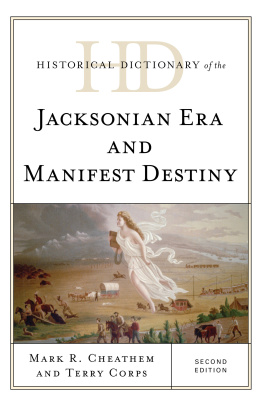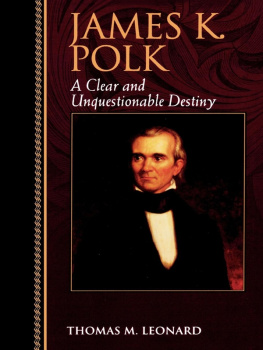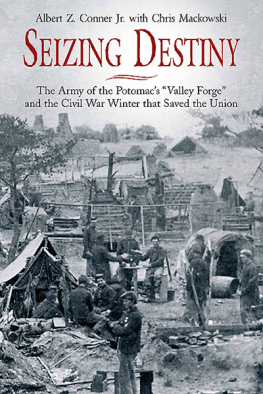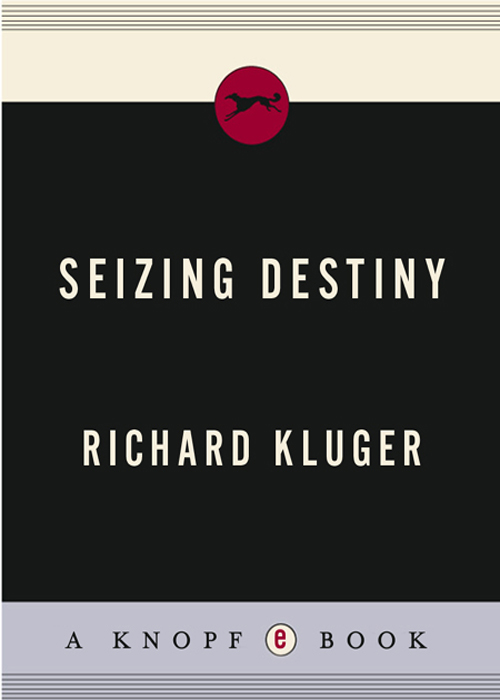
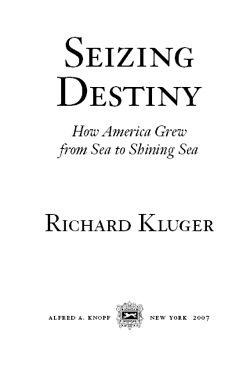
CONTENTS
For Josh, Ben, Nick, Than, Zack, and Will
may they help make their world
and their country (in that order)
better places
MAPS
PREFACE
O N THE SIXTH OF MAY, 1997, two months into his fifth year in office, President Bill Clinton made his first state visit to his nations immediate neighbor to the south. His aides were not elated to learn that Mr. Clintons host, President Ernesto Zedillo of Mexico, had arranged for the two heads of state to pay a ceremonial visit of homage to a monument, a pink marble terrace with six memorial columns, at the edge of Chapultepec Park three miles from the heart of Mexico City. At this place, 150 years earlier, in the closing battle of the American invasion of Mexico, U.S. troops had bloodily fought their way to the top of the hill commanded by Chapultepec Palace, then serving as Mexicos military academy. Among its last, fiercest defenders were six teenage cadets, one of whom, rather than surrender or be skewered by American bayonets, wrapped himself in the red, white, and green flag of his country before leaping off the castle ramparts to his death. Ever after, these defiant young martyrs have remained, in Mexican eyes, a constant reminder of the unjust onslaught by the bullying gringos from the north.
The Clinton advance team, reluctant to stir up the faint but unextinguished embers of animosity, voiced distress over this wreath-laying stop on the schedule. So we said its just a sign of respect, part of the protocol, a senior Mexican official told a New York Times reporter. Indeed, many heads of state had visited the monument to Mexicos Boy Heroes of Chapultepec, marking the hallowed battleground where 1,800 Mexicans (as well as 450 Americans) died.
But only once before had an American President appeared at the spot. Harry S. Truman came on the hundredth anniversary of the battle, silently laid a wreath, turned around, got back into his limousine, and drove off.
Clinton, a more voluble and gladhanding sort, dealt with it more graciously. Im going there as a gesture of respect, not only respect for their lives but respect for the patriotism and integrity of the people who have served this country, he said at a news conference prior to the ceremony. (Presumably this country referred to Mexico.) We are trying to heal the wounds of war with nations with whom we fought even more recently, the President added. At the event itself, however, no words were spoken; Clinton placed a wreath, the two chiefs of state stood at attention while their respective national anthems were played, and that was that. Afterward a history professor at the Colegio de Mxico remarked to a Newsday reporter, President Clintons visit is in a way a recognition of this symbol of an unjust war. The visit is a sign of historical sensibility on his part.
Sensibility, s regrets, nonot even for what posterity (and more than a few contemporaries) recognized as Americas biggest, boldest act of territorial plunder, under the guise of a war trumped up by a President of engorged willfulness. Even the all-embracing humanist poet of his age, Walt Whitman, celebrated the martial rampage, ignoringlike most of his countrymenthat Mexico in 1847 was a pitiably weak sister republic of the United States, an anarchic invalid that had run through eighteen presidents in the two dozen years since it had declared itself an independent nation. Yet America, with the full license of Congress, raped it, making off with more than 500,000 square miles, nearly half of its southern neighbors territory. Most of it, to be sure, was loosely held and yielded without a fight. But at times and in places the Mexicans, though poorly trained and ineptly led, fought proudly and determinedly.
For the United States, the decisive savaging of Mexico was the most brazen chapter in an ongoing saga celebrating what some of the nations most forthright statesmen had dignified as its providential mission. Lions like Henry Clay, Daniel Webster, and John C. Calhoun had asserted their country was hewing to a divinely guided trajectory, fated to extend its dominion from Hudson Bay to the isthmus of Panama. Some even proposed Patagonia as the only logical southern terminus of a hemispheric union under Americas enveloping benevolence. While managing to contain itself within more modest boundaries, the United States did not tire of trumpeting its manifest destiny, a luminous slogan minted shortly before the Mexican war by a New York journalist on the make and hell-bent on propagating expansive dominion as a national virtue.
To label the happy progress of the United States of America evidence of destinys smile did not make it so. But an incurable case of triumphalism had led Americans to assume that their singular success as a nation was not only foreordained but also deservedwhy else would the Universal Overseer have rewarded them so amply? Dumb luck was not an acceptably ennobling explanation. A more measured, less self-serving assessment of Americas achievements might suggest that, in pursuit of their mission, its supercharged people overlooked no opportunity to maximize every advantage that nature, geography, history, economics, and, yes, dumb luck presented to them. Crafting their own destiny with whatever tools were at hand, they gained a continental expanse by means of daring, cunning, bullying, bluff and bluster, treachery, robbery, quick talk, double-talk, noble principles, stubborn resolve, low-down expediency, cash on the barrelhead, and, when deemed necessary, spilled blood. Within ninety-one yearsthe blink of an eye by historical measurementa league of thirteen lately British coastal colonies, starting without an army or a design for their collaborative future operation, had by 1867 extended their boundaries to encompass 3.7 million square miles, from the western shore of the Atlantic to the eastern shore of the Bering Strait at the tip of Alaska. And then they stopped manifesting their destiny by seizing someone elses real estate. What they had gathered up, except for the future addition of some strategically located islands, was sufficient for their purpose. Today only Russia and Canada occupy more of the earths surface, and only China and India are more populous. No other sovereign entity ever grew so large so fast to become so rich and so strong.
The main dynamics of this growth process were these: a spectacular virgin landscape of immeasurable expanse and superlative fertility greeted invaders from the Old World, and nobody occupied it but scatterings of nomadic, Stone Age tribes shy on the organizational skills or death-dealing tools to repulse the newcomers. And why bother? Mother Earth was vast. How could the natives have guessed, until it was too late, that the white interlopers were only the first wave of what would shortly prove an ocean swell of humanity, come there to stay? The willful kings of Europe who had licensed the transatlantic expeditions presumed they could buy dominion on the cheap over this largely empty New World. The sovereigns simply announced their proprietary rights to all the territory that their intrepid explorers could seeand far, far beyondas though the mere act of proclamation somehow legitimized the claim. What the masters of the Old World could not have foreseen was how an unprecedented confluence of liberties and incentives, grounded on the availability of cheap, bountiful, and accessible land on every side and beyond every horizon, would result in the emergence of an unpredictably feisty breed of restless colonials, scornful of authority and orthodoxy.
Next page

